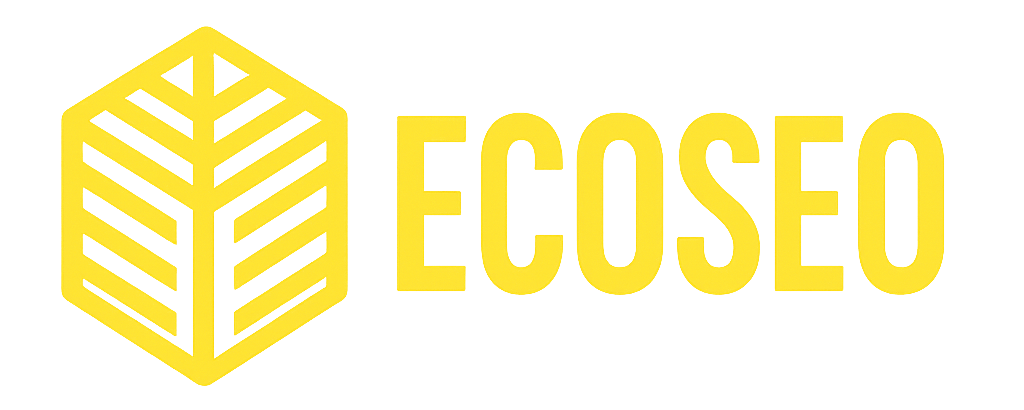Running a successful SEO agency means using the right SEO Tools for SEO Agencies to stay ahead of the competition.
From keyword research to tracking progress and optimizing content, having a reliable set of tools can streamline your processes, improve results, and ultimately help you deliver top-notch service to your clients.
But with so many options out there, where do you start?
In this guide, we’ll walk you through the essential tools every SEO agency needs to have in their toolkit. Whether you’re new to SEO or a seasoned pro, these tools can help enhance your workflow and drive success.
What is an SEO Tool and Why Do I Need It?
SEO tools are software or platforms designed to help optimize your website, improve its ranking on search engines, and drive organic traffic. These tools provide insights and data that help you understand the health of your website, your keyword rankings, your competitors’ strategies, and much more.
SEO tools is massive and now with AI its even more important. As of 2025, about 86% of SEO professionals are already using AI in their strategies. That’s a huge number — and it shows just how fast AI has become a normal part of the SEO toolkit.
From content generation and keyword analysis to optimization and automation, today’s SEO tools are evolving at lightning speed thanks to AI. This shift means that understanding how to use AI effectively isn’t just a nice bonus anymore — it’s quickly becoming a must-have skill for anyone serious about staying competitive in SEO.
Why do you need them? SEO tools allow you to streamline tedious tasks, automate processes, and access valuable data to make informed decisions. Without the right tools, it would be nearly impossible to scale an SEO strategy effectively. They’re your digital assistants—helping you work smarter, not harder.

1. Keyword Research Tools: The Foundation of SEO
Effective SEO hinges on selecting the right keywords, as they bridge the gap between your content and your target audience’s search intent. By understanding what terms and phrases your audience uses, you can craft content that resonates, drives traffic, and boosts engagement. Keyword research tools are essential for uncovering these opportunities, providing data-driven insights into search volume, competition, and trends.
For instance, tools like Ahrefs, SEMrush, or Google Keyword Planner can reveal high-potential keywords by analyzing metrics such as monthly search volume and keyword difficulty. A 2023 study found that 91.8% of all Google searches are long-tail keywords (phrases with three or more words), which often have lower competition and higher conversion rates. Focusing on these can help smaller sites compete with larger ones.
Essential Tools:
- Google Keyword Planner: This free tool is a great starting point for finding keyword ideas and gauging their potential. It’s perfect for beginner to intermediate SEO agencies.
- SEMrush: SEMrush goes beyond basic keyword research by providing data on search volume, competition, and trends. It’s invaluable for agencies looking to gain a competitive edge.
- Ahrefs: Ahrefs is known for its robust keyword analysis and backlink data. Its Keyword Explorer feature allows you to find keyword ideas and their difficulty scores, helping you pick the best ones for your content strategy.
- Ubersuggest: Ubersuggest is a great free option for keyword research. It provides keyword suggestions, search volume, and competition analysis, all in one place.
- KWFinder: Known for its user-friendly interface, KWFinder allows you to find long-tail keywords and provides difficulty scores, so you can target the easiest keywords that can bring in traffic.
Pro Tip: A good mix of free and paid keyword research tools ensures you can meet different client needs and budgets.
2. On-Page SEO Tools: Optimize Content Like a Pro
On-page SEO is all about optimizing the content and structure of your website to improve search engine rankings. The better your on-page elements are, the easier it is for Google to understand your content and serve it to users.
Internal linking greatly improves the user experience on your website. By linking related pages, you make it easier for users to find the information they need, creating a more intuitive and seamless navigation experience.
Essential Tools:
- Yoast SEO (for WordPress): Yoast is a go-to plugin for WordPress sites. It helps you optimize individual pages for SEO with real-time feedback on keyword usage, readability, and metadata.
- Surfer SEO: Surfer SEO is great for analyzing on-page factors like keyword density, headers, and internal linking. It also compares your pages to top-ranking competitors, so you can spot areas for improvement.
- Clearscope: Clearscope is perfect for content optimization. It helps you identify related terms and semantically related keywords that can improve the relevance of your content for search engines.
- PageOptimizer Pro: This tool helps you analyze and optimize the on-page elements of your content. It offers specific recommendations on improving keyword use, headings, and internal linking structure.
- Frase.io: Frase helps you create SEO-optimized content by using AI to suggest relevant keywords and content topics based on top-ranking pages.
Pro Tip: A well-optimized page not only ranks better but also provides a better user experience, which is crucial for increasing time spent on-site and lowering bounce rates. A high bounce rate can hurt your website’s rankings, as it’s a key factor in Google’s algorithms. To improve your site’s performance, it’s important to keep visitors engaged and encourage them to stay on your website longer.

Backlink Analysis and Link Building Tools: Boost Authority and Trust
Backlinks, or inbound links from other websites to yours, are a cornerstone of Google’s ranking algorithm, often likened to votes of confidence in your content’s credibility.
A robust backlink profile enhances your site’s authority, improves search engine rankings, and drives referral traffic. Google views high-quality backlinks—those from reputable, relevant sites—as a signal that your content is trustworthy and valuable, making them critical for SEO success.
According to a statistic on Ahrefs, pages with more backlinks from unique domains rank higher, with the top-ranking pages on Google averaging 3.8 times more referring domains than lower-ranked pages. This underscores the importance of quality over quantity.
Essential Tools:
- Ahrefs: Known for its backlink analysis, Ahrefs lets you track your backlinks, analyze competitors’ link profiles, and discover new opportunities.
- Moz Link Explorer: Moz’s Link Explorer tool allows you to evaluate link metrics, spot toxic links, and discover link-building opportunities.
- BuzzSumo: BuzzSumo helps you identify the most shared and linked-to content in your niche, giving you insights on how to build links and produce high-quality content.
- Majestic SEO: Majestic is a backlink analysis tool that helps you track backlinks, understand link quality, and monitor link-building efforts.
- Linkody: Linkody offers an easy way to track backlinks and get alerts when new links are gained or lost. It’s a great tool for managing your link profile.
Pro Tip: Focus on acquiring high-quality backlinks from authoritative sites. They carry more weight and can drastically improve your website’s SEO performance.
Read more about transitioning from In-House SEO to an SEO Agency
4. Analytics and Reporting Tools: Measure Success and Stay Accountable
Tracking your progress is key to understanding whether your SEO efforts are paying off. Analytics tools help you measure traffic, user behavior, conversion rates, and much more.
Tracking your progress is the only way to know if your SEO efforts are actually working. Analytics tools let you see the full picture — from traffic and user behavior to conversion rates and everything in between.
Without that data, you’re basically flying blind. You won’t know what’s driving results, what needs fixing, or where your biggest opportunities lie. In short, if you’re not tracking, you’re guessing — and guessing doesn’t grow your business.
Essential Tools:
- Google Analytics: The gold standard for tracking website performance, Google Analytics provides in-depth data about user behavior, traffic sources, conversions, and more.
- Google Search Console: Search Console is a must-have for any SEO agency. It shows you how your site is performing in search results, highlights issues that might affect rankings, and provides data on clicks, impressions, and CTR.
- Data Studio (Google): Data Studio makes it easy to create beautiful, custom SEO reports for your clients. You can pull data from Google Analytics, Search Console, and other sources to track SEO performance over time.
- Matomo: Matomo is a powerful analytics tool that offers data privacy, along with deep insights into user behavior and traffic sources.
- Piwik PRO: For agencies with a focus on privacy and compliance, Piwik PRO offers advanced analytics, tracking, and reporting features, similar to Google Analytics but with an emphasis on user data protection.
Pro Tip: Regular reporting is crucial for showing your clients the results of your work. Make sure to highlight key metrics and present them in an easy-to-understand format.

5. Site Audit Tools: Spot and Fix Technical Issues
Technical SEO plays a critical role in your website’s performance. If your website has issues like slow load times, broken links, or crawl errors, it can significantly impact rankings. Running regular SEO audits helps you stay on top of any technical problems.
Essential Tools:
- Screaming Frog SEO Spider: This tool crawls your site and generates a detailed report on everything from broken links to missing meta tags. It’s incredibly useful for SEO agencies performing audits.
- SEMrush Site Audit: SEMrush offers a comprehensive site audit tool that checks for over 130 SEO issues, from crawlability to site speed, helping you optimize websites for better performance.
- DeepCrawl: DeepCrawl is another robust site auditing tool that helps you identify technical issues affecting your SEO. It’s especially great for large websites with complex structures.
- Sitebulb: Sitebulb is an intuitive site audit tool that helps SEO agencies identify and resolve technical issues with comprehensive visual reports.
- GTmetrix: While not a full-scale audit tool, GTmetrix focuses specifically on site speed, helping you monitor and improve page load times, which is crucial for SEO.
Pro Tip: Regular site audits can save you from future headaches by identifying and fixing issues before they negatively impact your SEO efforts.
Read more about how to choose an SEO Agency?
6. Content Management Tools: Streamline Content Creation
Creating content that is SEO-friendly is one of the biggest challenges for many agencies. The right content tools can help you produce high-quality, engaging content that’s optimized for search engines.
In September 2023, Google highlighted the significance of valuable content as a key ranking factor with the rollout of its Helpful Content Update. This update shifted the focus towards prioritizing content that is truly helpful and informative for users, rather than content created purely for the purpose of boosting search engine rankings.
Essential Tools:
- Grammarly: Grammarly ensures your content is error-free, improving readability and professionalism. It’s perfect for refining the text before publishing.
- Hemingway Editor: Hemingway makes it easy to simplify your content for better readability. It helps eliminate unnecessary complexity, making sure your content is easy to digest for readers.
- Canva: When you need visuals, Canva is a go-to tool for creating high-quality images and infographics. Great visuals complement your SEO content and improve user engagement.
- Google Docs: While basic, Google Docs offers a collaborative environment where content creators can work together on SEO-focused articles and documents.
- BuzzSumo Content Analyzer: BuzzSumo’s content analyzer helps you identify trending topics, find high-performing content in your niche, and discover inspiration for your next SEO strategy.
Pro Tip: Content that’s well-optimized and easy to read keeps users on your site longer and reduces bounce rates, both of which are important for SEO.

7. Local SEO Tools: Improve Local Search Rankings
If your clients have a local presence, optimizing for local search is crucial. Local SEO tools help you boost rankings in geographically targeted search results.
Local SEO is a big part of what I do for my clients and honestly my dedicated Local SEO tool is one of my biggest secret weapons to get them better rankings.
In short I use it to audit citations and track hyper-local performance — but what really makes it powerful is how it helps me spot and fix the issues that quietly hold local rankings back.
Here’s how it works for me:
- It finds NAP inconsistencies: The tool crawls through hundreds of directories and flags any mismatched or outdated Name, Address, or Phone number (NAP) details. These inconsistencies might seem small but they completely confuse search engines — and they’re one of the top reasons a business doesn’t show up locally.
- It finds duplicate listings: It digs up old or forgotten profiles that might still be floating around online. I can then merge, suppress or clean them up so the business’s authority isn’t split across multiple listings.
- It shows local ranking gaps: Using a grid-style map I can see exactly where a client’s rankings start to dip across their service area. I can then zero in on the neighborhoods that need more attention and optimization.
- It manages review gaps: It pulls in all of a client’s reviews from across different platforms so nothing slips through the cracks. Keeping those responses consistent is key to building the Prominence that Google rewards.
At the end of the day this tool is like a diagnostic engine for me — it instantly exposes the small but critical errors that often block a business from showing up in Google’s Local 3-Pack.
Essential Tools for Local SEO:
- Moz Local: Moz Local helps manage local listings, ensuring your clients’ business information is accurate across various platforms.
- BrightLocal: This tool offers a comprehensive set of local SEO tools for tracking rankings, managing reviews, and auditing citations, all of which help your clients show up in local search results.
- Google My Business: While not a third-party tool, optimizing and managing Google My Business is a must for improving local rankings and boosting visibility in local search.
- Whitespark: Whitespark is another great tool for managing local SEO tasks, from citations to reviews, making it easier to maintain a strong local presence for clients.
- Yext: Yext helps businesses manage their location data across the web, ensuring consistent and accurate NAP (Name, Address, Phone) information.
Pro Tip: Local SEO is more important than ever for businesses targeting specific regions. Ensure you optimize and maintain a strong local presence for your clients.
Read more about the 11 Red Flags When Choosing an SEO Agency
8. Reputation Management Tools: Build and Protect Brand Image
Maintaining a positive online reputation is critical for both local and global businesses. Reputation management tools help track and improve the perception of your brand across various platforms, including review sites, social media, and forums.
A robust online reputation can greatly enhance your website’s search engine results page (SERP) rankings, as positive customer reviews and user-generated content signal trust and authority to search engines.
Essential Tools:
- Brand24: Brand24 tracks online mentions of your brand and helps you engage with customer feedback, ensuring that you’re always aware of what’s being said about you.
- Reputology: Reputology is an excellent tool for managing reviews from all platforms, responding to customer feedback, and gaining insights on how your brand is perceived.
- Google Alerts: While not as comprehensive as paid tools, Google Alerts is a free tool that sends notifications whenever your brand is mentioned online, helping you stay on top of reputation management.
- ReviewTrackers: This tool aggregates reviews from various platforms, helping you track feedback and respond quickly to both positive and negative reviews.
- Podium: Podium helps you collect and manage customer reviews, allowing you to improve your online reputation and maintain strong relationships with your clients.
Pro Tip: A positive online reputation is vital for both attracting new customers and retaining existing ones. Stay proactive about managing online reviews.

9. E-E-A-T SEO Tools: Enhance Trust and Credibility
E-E-A-T — that’s Experience, Expertise, Authoritativeness, and Trustworthiness — is at the core of my SEO strategy. I use a combination of tools to audit backlinks and content depth and author credibility, so every page signals real value to Google.
Here’s how I use them to fix E-E-A-T issues:
- Authority Gaps (Authoritativeness & Trust): Using backlink analysis tools like Ahrefs or Moz, I check the Domain Rating and Trust Flow of sites linking to us. We were getting links from low-quality or irrelevant domains. I disavowed those toxic links and focused our outreach on high-DR, industry-relevant sites, so Google sees us as a true authority.
- Shallow Content (Experience & Expertise): Tools like Clearscope and Surfer help me analyze top-ranking pages and spot missing topics, entities or depth. I found a few key articles were just surface level. I made sure writers include first-hand experience, cite industry data and cover all related subtopics, so our content has the depth and expertise Google looks for.
- Creator Anonymity (Trust): A crawl revealed many articles lacked author bylines, bio pages or proper schema markup. We created author profiles with credentials, added Author and ProfilePage schema and linked every high-value page to a known expert to build trust.
In short, these tools are like a E-E-A-T diagnostic for our content, helping me figure out what’s holding us back and what to do to build authority and credibility across the site.
Essential Tools:
- Google Search Console: Use GSC to track which pages are seen as authoritative and trustworthy by Google, offering insights into how you can improve.
- Ahrefs: Ahrefs is not only for backlink analysis but also for monitoring how authoritative your content is by checking your backlinks and referring domains.
- SEMrush: SEMrush helps analyze the trustworthiness of your website and competitors by looking at their domain authority and backlink profiles.
- ContentKing: ContentKing tracks your website’s content and SEO health in real time, ensuring that it aligns with EATT principles.
- ClearScope: ClearScope helps with content optimization, ensuring that you create high-quality, authoritative content that builds trust with your audience.
Pro Tip: Content that showcases expertise and authority not only ranks better but also builds trust with your audience, leading to higher engagement.
Read about how to Optimize for Google E-E-A-T SEO
FAQ
Why are SEO tools necessary for my business?
SEO tools are essential for tracking performance, finding opportunities, and improving your website’s rankings. They save you time, automate tasks, and provide valuable data that can inform your SEO strategy.
Can I use free SEO tools, or do I need to invest in paid ones?
Both free and paid tools have their benefits. Free tools are great for beginners or small businesses with a limited budget, but investing in paid tools often gives you more features and data, making them a better choice for larger agencies or more competitive industries.
How do I choose the right SEO tools for my agency?
Start by identifying your needs—whether it’s keyword research, site audits, backlink analysis, or content optimization. Once you know what you’re looking for, compare tools based on features, usability, and budget to find the best fit.
How often should I run SEO audits?
It’s a good practice to run SEO audits regularly—at least once a month for smaller websites and quarterly for larger websites. This ensures your site stays optimized and helps identify and fix technical issues before they hurt your rankings.



